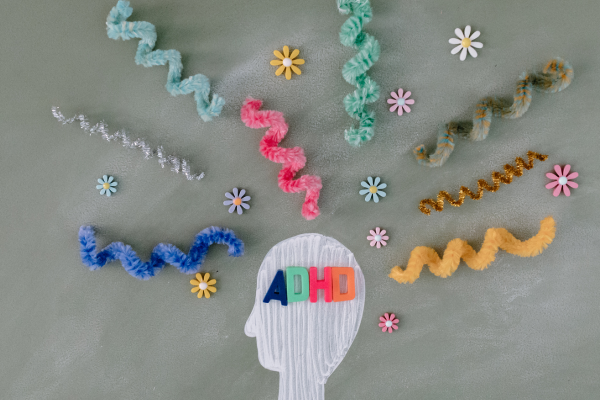
Imagine the sinking feeling in your gut – your child, a whirlwind of boundless energy, disrupts the classroom with blurted-out answers and restless movement. Or perhaps you see the quiet withdrawal, the intense focus on specific topics, and the social interactions that leave them overwhelmed. These are just glimpses into the daily realities of families raising children with Attention-Deficit/Hyperactivity Disorder (ADHD).
As a child psychologist and education therapist with over a decade of experience, I’ve witnessed countless families navigate this emotional rollercoaster. There’s the concern for their child’s well-being, the confusion about the diagnosis, and a yearning to understand their unique needs. The good news? Effective communication can be the bridge that connects you and your child, fostering a supportive and positive environment where they can thrive.
Understanding the ADHD Landscape

According to American Academy of Child and Adolescent Psychiatry, ADHD is a complex neurodevelopmental disorder that can affect a child’s focus, impulsivity, and emotional regulation. While it manifests differently in each child, some common signs include:
- Difficulty sustaining attention in tasks or play
- Hyperactivity or fidgeting
- Impulsivity, blurting out answers or interrupting conversations
- Difficulty organizing tasks and completing chores
- Forgetfulness and losing belongings
These challenges can often lead to misunderstandings and strained relationships. A frustrated parent might yell, “Why can’t you just focus?” while a child with ADHD might feel overwhelmed and shut down. This negative cycle can leave everyone feeling isolated and discouraged.
Building Bridges Through Communication

The key to breaking free from this cycle is building strong communication skills. Here are some practical tips to consider:
- Embrace Active Listening: Put away distractions, make eye contact, and truly listen to your child’s thoughts and feelings. Validate their experiences with empathy. For instance, instead of dismissing their frustration with homework, acknowledge it: “It sounds like you’re feeling stuck right now. Can you tell me a bit more about what’s challenging?”
- Speak Their Language: Keep instructions clear, concise, and positive. Break down tasks into smaller, manageable steps. Instead of a long-winded lecture about cleaning their room, try, “Let’s pick up five toys together before bedtime.”
- Focus on the Positive: Catch your child following directions or exhibiting desired behaviours. Positive reinforcement strengthens these behaviours and fosters a more collaborative atmosphere. “Wow, I see you cleaned up your blocks all by yourself! That’s fantastic!”
- Create a Safe Space for Open Communication: Encourage your child to express their needs and frustrations openly. Let them know it’s okay to make mistakes and that you’re there to support them.
Beyond Words: Actions Speak Volumes

Communication isn’t just about words. Here are some additional strategies to create a more supportive environment for your child with ADHD:
- Establish Clear Routines and Schedules: Predictability is key for children with ADHD. Create consistent routines for mornings, evenings, and homework time. Visual schedules with pictures or charts can be particularly helpful. The National Institute of Mental Health provides resources and information on creating schedules for children with ADHD.
- Minimise Distractions: Turn off the TV during homework time and create a quiet, clutter-free workspace.
- Move it or Lose it: Physical activity is essential for children with ADHD. Schedule regular breaks for movement throughout the day.
- Celebrate Individuality: ADHD is not a deficit; it’s a different way of thinking and learning. Help your child discover their strengths and interests, and nurture their passions.
Empowering Parents Through Early Intervention

The earlier a diagnosis and intervention plan are established, the better the long-term outcomes for a child with ADHD. At ONE Intervention Centre, we understand the unique challenges faced by families with ADHD. Our Early Intervention Program for Infants and Children (EIPIC) is designed to support children from birth to 6 years old. This program offers a comprehensive assessment to identify developmental delays and create a personalised intervention plan. Our team of specialists utilises a variety of evidence-based approaches, including:
- Applied Behaviour Analysis (ABA): This approach focuses on reinforcing positive behaviors and reducing challenging behaviors.
- Speech and Language Therapy: This therapy can help children with ADHD develop their communication skills and improve
their ability to express themselves clearly.
- Occupational Therapy: Occupational therapists can help children with ADHD develop the fine and gross motor skills they need to participate in daily activities.
School Readiness Program: Paving the Way for Success
As children with ADHD transition into school, they may face new challenges. Our School Readiness Program equips children with the necessary social, emotional, and academic skills to thrive in a classroom setting. This program focuses on areas such as:
- Social Skills Development: We help children learn how to interact with their peers appropriately, take turns, and resolve conflicts peacefully.
- Emotional Regulation: We teach children strategies for managing their emotions, such as deep breathing and relaxation techniques.
- Attention and Focus Skills: Through engaging activities and games, we help children improve their ability to concentrate and stay on task.
A Journey of Support, Not Struggle
Parenting a child with ADHD can be a journey filled with both challenges and rewards. At ONE Intervention Centre, we believe that with the right support and resources, every child with ADHD can reach their full potential. We offer a collaborative approach, working closely with parents and educators to ensure continuity of care. Our team is also here to support parents on their own journey, providing guidance on effective communication strategies, behaviour management techniques, and self-care practices.
Taking the Next Step
If you suspect your child might have ADHD, don’t hesitate to reach out to a qualified professional. Early intervention is crucial for maximizing their potential and setting them on the path to success. Our website (www.oneintervention.org) provides a wealth of resources on ADHD, including information on symptoms, diagnosis, and treatment options. You can also contact ONE Intervention Centre today to schedule a consultation and embark on this journey together. You can also find us on Instagram and Facebook @oneintervention.
Remember, you are not alone. With open communication, a supportive environment, and evidence-based intervention, you can help your child with ADHD thrive.

